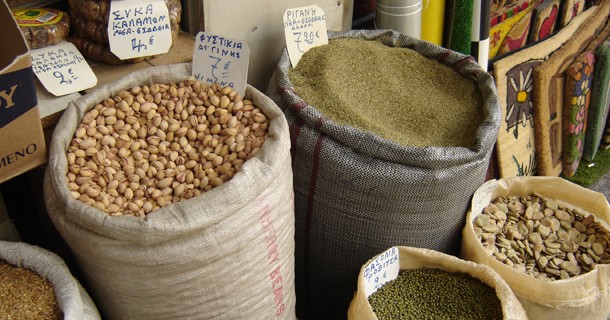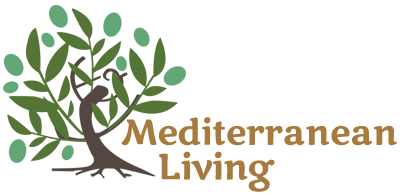
photo by Bill Bradley
Most people of industrial nations eat too much protein and especially too much protein from animal products. When you can get a 48 ounce steak or a 5 pound hamburger at a restaurant then our priorities around food have definitely been skewed. In the Mediterranean Diet, there are many days when animal proteins are not eaten at all, instead nuts, seeds or beans are the protein of the day. If meat is eaten, it is rarely consumed as a whole steak or a burger. A pound of meat is often cut into cubes, stewed with lots of veggies and served to 6 to 10 people. This way, you still get the meat flavor, but you are only eating a few ounces instead of a pound for yourself.
Even fish, which many think of as a Mediterranean staple does not get eaten in huge quantities and is eaten with lots of vegetables.
Suggestions on changing your protein with the Mediterranean Diet:
- Try a day or two of eating no animal products at all. Find some great soup or chili recipes that have beans in them, but no meat.
- On a day when you are not eating animal products, you can get your protein from nuts and seeds on salads.
- If you are a big meat eater try cutting your meat intake in half at a meal and filling up on other items or try a chili or a stew that contains meat, but in small quantities.
- Try a meal with one of the fatty fishes (which are high in omega-3 fatty acids): Salmon, haddock, halibut, albacore tuna are just a few. You don’t need to eat a lot of it, just a few ounces is fine so making a fish stew instead of eating a half pound filet is a smart alternative. Make sure your fish is from the ocean and not farm raised.
- Try to find meat and poultry that is not only free range, but are also grass fed. Grass fed animals have higher amounts of omega-3 fatty acids and are much leaner than grain fed animals.
